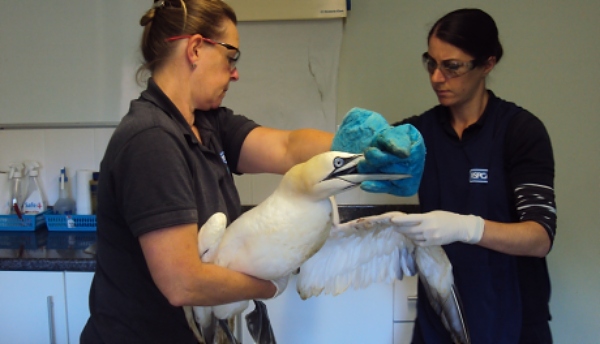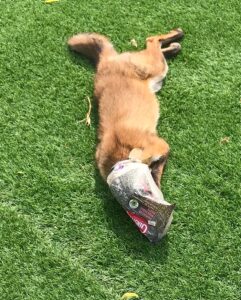
RSPCA chiefs today issued a plea for people to take rubbish home after latest figures showed more than 80 call outs in Cheshire to animals badly affected by litter.
Incidents included a duck tangled in a medical face mask, a baby hedgehog with plastic wrapped around her neck, a fox with his head caught in a pasty wrapper, and a gannet entangled in plastic.
The latest figures show a total of 3,874 calls across the UK about animals affected by litter in 2020.
Of those, 89 were in Cheshire, one of the highest for a rural county and more than half of all incidents in Wales.
The animal charity is urging people to join the Great British Spring Clean.
Despite people being in lockdown for many months the RSPCA still received more than 10 calls a day about animals affected by litter.

Head of the RSPCA’s wildlife department Adam Grogan said: “Our staff deal with thousands of incidents every year where animals have been impacted by litter – and they’re the ones that we know of.
“I’m sure for every animal we’re able to help there are many that go unseen, unreported and may even lose their lives.
“Litter is one of the biggest hazards our wildlife faces today and the pandemic has just added to the problem with many disposable masks just being discarded on the ground.
“These are a new danger to animals and we’ve been called out to rescue animals like ducks and gulls caught up in the masks’ elastic straps.
“That’s why we’re calling on the public to get involved in the Great British Spring Clean to help remove litter that may endanger animals.”
As well as everyday rubbish, the RSPCA also sees many animals arriving into its care with terrible injuries caused by angling litter such as discarded fishing line and hooks to plastic netting.
Nearly 40% (1,510) of all litter-related calls to the RSPCA last year were about animals that had become caught in fishing litter.
Adam added: “Animals who get their heads or necks stuck in litter can suffer severe injuries as they struggle to break free and can even suffocate, while others will slowly grow weaker and weaker as they try to hunt or find food or water.
“Others will get fishing line or netting cutting deep into their skin, affecting circulation and with wounds becoming seriously infected.
“These hazards can very quickly become a matter of life or death for these animals and action is urgently needed to tackle this problem head-on.
“It’s up to every one of us to do our bit in the war against litter.
“The majority of anglers do dispose of their litter properly and it is frustrating that those who don’t possibly don’t realise how dangerous it is to animals.
“Discarded line in particular is a terrible hazard for wildlife, particularly as it can be almost invisible.”
More details can be found on the Angling Trust Take 5 campaign and make use of the recycling scheme to dispose of their waste tackle.





















Recent Comments